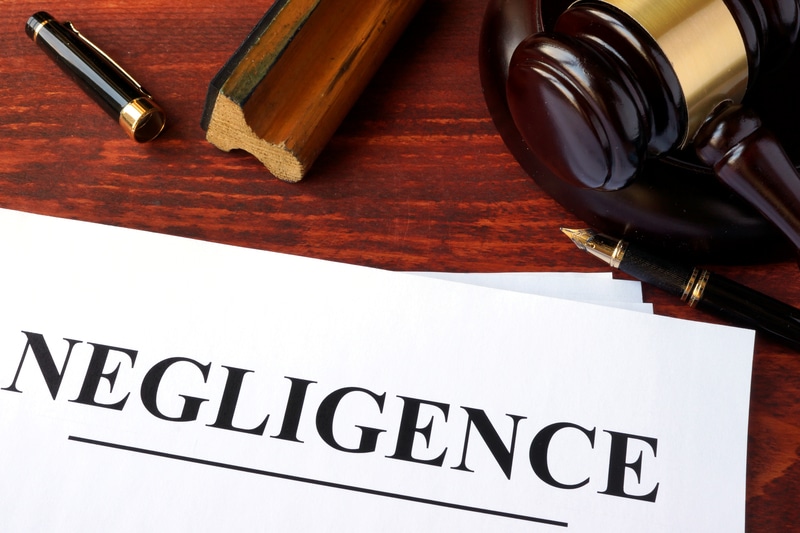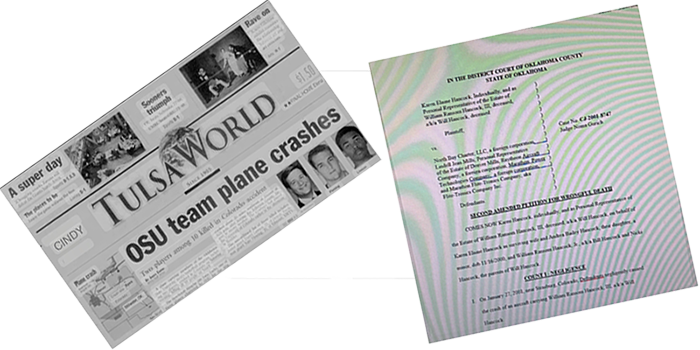Unfortunately, most people are unaware of the fact that it is now possible to file a lawsuit and seek compensation for injuries resulting from someone else’s negligence. The amount of physical, emotional, and financial strain resulting from such negligence warrants a legal claim, and individuals/corporations alike should be held accountable for their actions.
What is Negligence?
Whether you’re dealing cases of improper medical practice, a car accident, or your run of the mill case of “slip and fall,” negligence is the term used to hold a party liable for events leading up to your injury. This legal theory requires some burden of proof in many cases and claims involving injury. Effective legal representation is crucial in these cases, for the main reason that proving negligence is a complex process that requires some level of expertise.
In principle, any careless act that results in injury to another is considered negligent behavior. It is crucial to keep in mind that whether you choose to settle the case out of court, or if you have enough proof to go to trial, the evidence of this legal principle needs to be airtight.
How to Prove Negligence
If you do decide to go through with your lawsuit, then there are four critical elements you need to satisfy to prove, beyond a reasonable doubt, that the defendant is liable and expressly responsible for negligent behavior. These four factors include duty, breach, causation, and damages. Let’s look at them in a bit more detail, shall we?

Elements of a Negligence Claim
Legal Duty
This is usually the easiest to prove, especially where corporations are concerned. The concept of legal duty indicates that you should be accorded some level of care, as a bare minimum, by the person liable of negligence. An example of statutory responsibility is an injury you sustain at the workplace due to poor working conditions. The legal duty is a prevalent factor when it comes to proving cases dealing with medical malpractice suits, where doctors abuse a patient’s right to efficient medical care.
Duty can also be proven if the injury you sustain is a result of an accident, where the accused flouts traffic rules and causes harm. There are several other examples, but the crux of it is, if you have some professional relationship with the accused, then they are bound by the element of legal duty.
Duty Breach
After establishing legal duty, you will need to prove, in totality, that there was, in fact, a breach. This is achieved through a practice that shows how an ordinary, responsible party (a reasonably prudent person) would have responded under the same circumstances.
This legal standard sets a statute to how the defendant ought to have responded in that situation. It also proves why this response constitutes negligence.
Essentially, the idea behind establishing a breach of contract is to prove that the defendant’s actions directly resulted in injury.
Causation
The next element on how to prove negligence involves a process that determines actual bodily harm. Proving negligence is one thing, but for you to get any form of compensation, then you must prove, conclusively, that this lack of forethought caused the injury in question.
There has to be a direct link between your injury and the defendant’s negligent behavior. Most plaintiffs are known to try and increase compensation by tying unrelated incidents into the lawsuit, which is both ill practice and dishonest.
Note that you can be prosecuted for lying under oath, so ensure any injury you suffer truly reflects negligent behavior and isn’t an attempt to defraud someone else. There is also the consideration of “unforeseeable” circumstances.
This occurs when proof indicates that the defendant couldn’t have anticipated the injury caused, and hence couldn’t have acted any differently. Random acts of nature and other variables may tilt the scale in the defendant’s favor.
Damages
The last element of how to prove negligence plays on the court’s ability to render compensation to you, as the plaintiff for the injury resulting from the defendant’s negligence. This is done after satisfying that, indeed the injury was a result of negligence. For the most part, this compensation is monetary, and it takes into account resultant property damage or medical expenses that you may have incurred.
Bottom Line
Trying to pursue a personal injury case can be difficult without the right kind of professional assistance, especially if you’re going up against a corporation. You need to find a litigator who is both experienced and has the industry expertise to get you the compensation you deserve! For more information contact one of our highly qualified Attorneys at 580-224-0900 for a free consultation.


